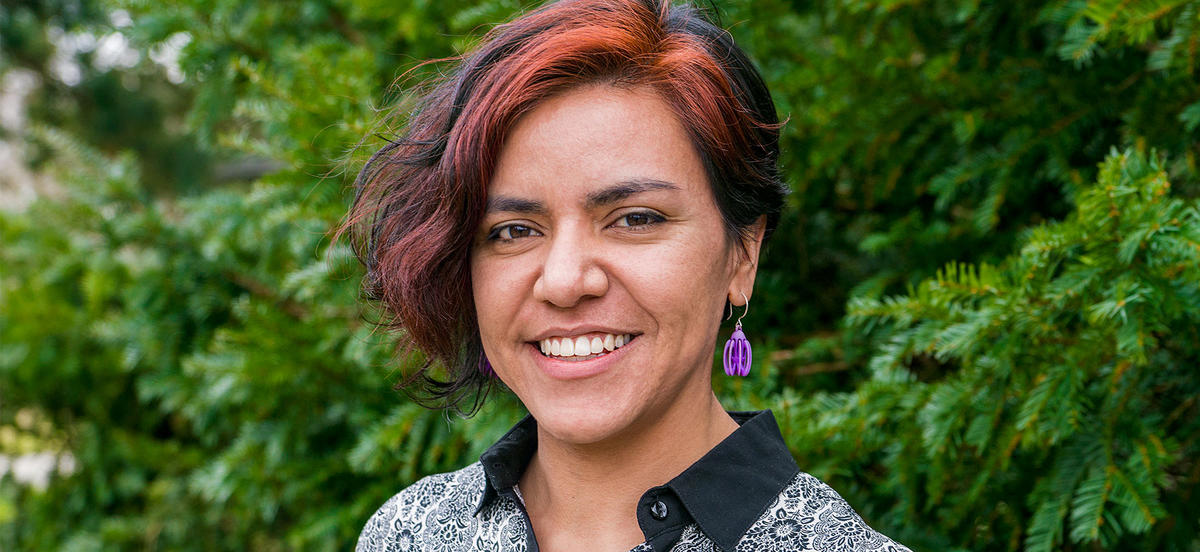Lina Martínez Hernández Awarded New Directions Fellowship from Andrew Mellon Foundation

Lina Martínez Hernández. Photo: Patrick Montero.
Details
The assistant professor of Spanish will conduct research and workshops in order to develop strategies for community education and organizing.
New Directions Fellowships enable scholars in the humanities to study the issues and problems that interest them most. Prof. Lina Martínez Hernández intends to use the $183,000 award, which runs from April 1, 2023 to Aug. 31, 2025, to fund a project called “Interdisciplinary Approaches to Community Engaged Learning: Pedagogies for the Construction of Mutuality.” As she explains, “My scholarly coursework and research will include studies with researchers in Latine and Latin American popular education methods and movements; [I will] participate in courses and join research groups both in Philadelphia and in Cali and Bogotá, Colombia.
“Additionally, I will pursue a certificate in Executive Social Impact programs, focusing on partnerships between nonprofits, government agencies, academic institutions, and communities from a global perspective. I will complement these studies with a series of workshops in alternative spaces to connect with activists and community educators and learn strategies to expand popular, feminist, antiracist, and queer methodologies that address community education and organizing.”
Some of that work is well underway, Hernández points out, including several projects involving Haverford students and organizations serving Spanish-speaking migrant communities in Philadelphia. One of the recurring needs identified through this work is digital literacy for Spanish-speaking migrant communities. This became particularly acute after the onset of the pandemic, when members of these communities needed to lean heavily on digital tools.
“How do you access a Zoom meeting if your kid's school is asking you to go to a meeting with their teacher?” says Hernández . “How do you use Google Classroom? How do you write to your immigration lawyer? How do you apply for funds from the city? Those kinds of things were very urgent and necessary, and many of the resources online are only in English. We were able to provide some support and co-create with the communities based on that particular context of the pandemic—[that] was interesting for us to develop.”
These projects, notes Hernández, are collaborative and include Haverford’s Center for Peace and Global Citizenship and the Bryn Mawr/Haverford Education Program, as well as community-based organizations in Philadelphia, such as Puentes de Salud, New Sanctuary Movement, Mighty Writers, Taller Puertorriqueño, and others. Of particular assistance, she says, have been Alexandra Wolkoff ’14 (the former education director of Puentes de Salud), and Marguerite Kise (the former political education coordinator with the New Sanctuary Movement of Philadelphia). “[They] have been incredible interlocutors, co-creators, and co-facilitators of these projects.”
The Mellon New Directions Fellowship will also provide an opportunity for Hernández to address a problem inherent in all school-based outreach: continuity. Projects emanating from the college classroom typically mean that student involvement lasts only for the semester in which the students are enrolled in the class. Organizations with annual strategic plans may be reluctant to collaborate with a college or university because of that student changeover.
The challenge is devising a project that allows students to collaborate with organizations for a single semester without hampering the organizations’ long-range vision and goals. “That's why I need to learn more about how non-profit organizations work and what are their needs,” Hernández says.
One other aspect of the grant will support her in expanding upon her book project, entitled, “Educar haciendo: Queer and Feminist Pedagogies from Latin America and the Caribbean.” Born and raised in Colombia, Hernández has studied its popular education movements since she attended college there—particularly its developing pedagogical philosophies.
“Queer and feminist pedagogies are the ones that I'm most familiar with because of my own identities,” she says. “I've been part of feminist collectives for a long time. And those angles, those approaches from a queer feminist pedagogy are approaches that critically examine who is being left behind in social movement organization and how can you create movements that are more inclusive.
“Everything I'm going to be learning with people who do popular education is also going to serve the projects that I create and facilitate with the College and Latine communities here in Philadelphia. I'm grateful that I can do [this work] because of the Mellon award.”
–Sam Donnellon



